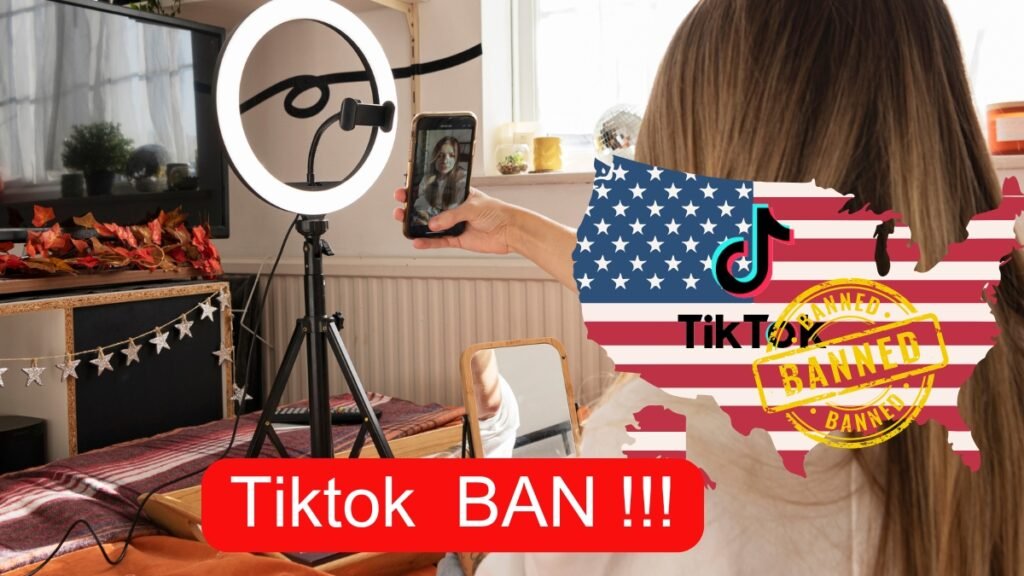TikTok, a wildly popular social media app owned by Chinese tech company ByteDance, has garnered immense global popularity with its engaging short-form video content. However, in the United States, TikTok is under intense scrutiny due to national security concerns. Critics, including U.S. lawmakers and intelligence agencies like the FBI, argue that the app poses risks related to data privacy, foreign influence, and espionage. This controversy has escalated to the point where a nationwide ban is now being considered.
The Role of China and ByteDance
At the heart of the debate is TikTok’s connection to its parent company, ByteDance, headquartered in Beijing. Critics argue that China’s 2017 National Intelligence Law, which mandates that Chinese companies must assist in government intelligence operations upon request, could enable the Chinese Communist Party (CCP) to access U.S. user data collected by TikTok. Although ByteDance has denied such allegations and stated that TikTok operates independently, these assurances have not alleviated concerns among U.S. officials.
Concerns Raised by U.S. Authorities
Data Privacy and Collection
TikTok collects vast amounts of user data, including browsing habits, device information, and location data. This is not unique to TikTok; most social media platforms gather similar data for targeted advertising. However, the issue lies in who controls the data. Critics argue that ByteDance’s access to this information creates a potential pipeline for the Chinese government to harvest sensitive information on millions of Americans.
Propaganda and Influence
Another major concern is TikTok’s potential to serve as a tool for disinformation and propaganda. U.S. officials worry that the app could be used to manipulate public opinion by promoting certain narratives favorable to Chinese interests or suppressing content critical of the CCP. This is particularly significant given TikTok’s popularity among younger audiences, a demographic highly active in political and social movements.
The FBI’s Perspective
The Federal Bureau of Investigation (FBI) has taken a strong stance against TikTok, echoing concerns about data security and influence operations. FBI Director Christopher Wray has publicly stated that TikTok poses a threat to national security because of its potential for:
- Data Exploitation: The FBI fears that the app could allow the CCP to gather personal and sensitive data, which could be weaponized in cyberattacks or surveillance activities.
- Manipulation of Content: The agency warns that TikTok’s algorithms could be engineered to amplify divisive or false content, creating societal discord or influencing political processes in the U.S.
The FBI has emphasized the importance of addressing these risks through legislative or regulatory measures to prevent foreign adversaries from exploiting U.S. digital infrastructure.
Legislative Actions and Government Response
The U.S. government has responded with both proposed legislation and direct action to mitigate TikTok’s perceived risks:
- Forced Divestment: Congress passed a bill mandating ByteDance to divest from TikTok or face a complete ban. If ByteDance does not comply, TikTok could be removed from Apple’s App Store and Google Play Store, making it unavailable to new users.
- Ban on Federal Devices: TikTok is already banned on government-issued devices due to concerns about espionage and data breaches.
- Restrict Act: Proposed legislation aims to empower the U.S. government to restrict or ban foreign technology that poses security risks.
While these measures are being deliberated, TikTok has made efforts to address concerns, including storing U.S. user data on servers operated by Oracle and establishing oversight committees. However, these actions have not fully convinced U.S. officials.
Impact on TikTok’s Competitors
If TikTok is banned, its competitors are poised to benefit significantly:
- Instagram Reels: Owned by Meta, Instagram Reels is TikTok’s largest competitor and offers similar short-form video features.
- YouTube Shorts: Google’s platform, with its massive user base, could see an influx of creators and viewers.
- Snapchat Spotlight: Snapchat’s dedicated space for viral videos is another alternative for creators.
- Triller: A U.S.-based platform that positions itself as a TikTok alternative with a focus on music and entertainment.
- Clash: A growing app that prioritizes direct monetization for content creators.
A TikTok ban would open opportunities for these platforms to capture a larger share of the social media market, particularly in the U.S.
Global Implications of a TikTok Ban
The ban would have far-reaching consequences, not just for TikTok but for the broader tech industry and international relations:
- Tech Decoupling: A ban could accelerate the decoupling of U.S. and Chinese technology ecosystems, with stricter regulations on Chinese-owned platforms in Western markets.
- Impact on Creators: TikTok’s vast creator economy, which supports influencers, small businesses, and advertisers, would face significant disruption.
- Diplomatic Tensions: The ban could strain U.S.-China relations further, impacting trade and geopolitical negotiations.
TikTok’s Defense and Counterarguments
TikTok has consistently denied allegations of data misuse and emphasized its independence from ByteDance. The company has taken proactive measures, including:
- Data Localization: Storing U.S. user data on domestic servers.
- Transparency Centers: Allowing third-party audits of its algorithms to ensure fair content moderation.
- Engaging with Lawmakers: TikTok’s CEO has appeared before Congress to address concerns and advocate for continued operation in the U.S.
TikTok argues that banning the app would set a dangerous precedent for regulating technology based on geopolitical tensions rather than evidence.
Conclusion
TikTok’s future in the United States remains uncertain as national security concerns collide with the app’s immense popularity. While U.S. lawmakers and intelligence agencies, including the FBI, emphasize the risks associated with ByteDance’s ownership, TikTok has taken steps to alleviate fears. However, the underlying issue of trust in Chinese-owned technology persists, reflecting broader tensions between the U.S. and China.
As the debate unfolds, the outcome will not only shape the future of TikTok but also redefine how nations regulate foreign-owned digital platforms in an increasingly interconnected world. For now, TikTok’s survival in the U.S. hinges on its ability to address security concerns while navigating complex geopolitical dynamics.

